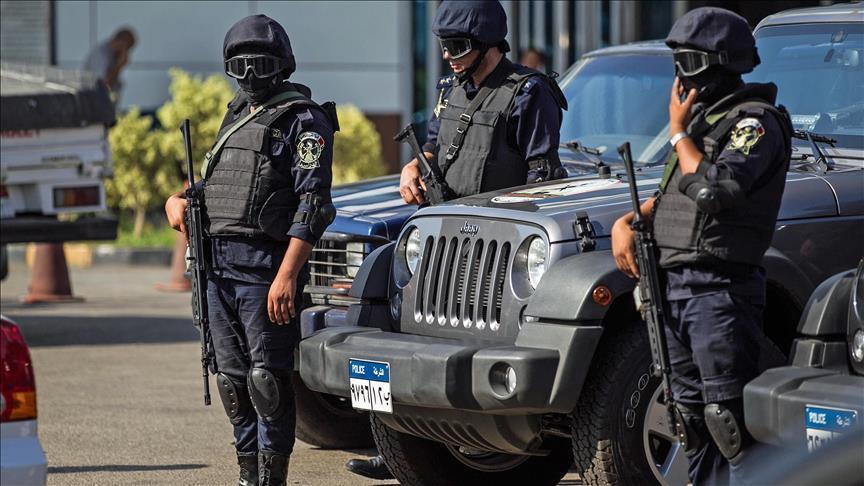
The International Monetary Fund considers a boost to Egypt’s loan as the war in Gaza has battered its already struggling economy.
The International Monetary Fund (IMF) could increase Egypt’s rescue program due to the impact of the war in neighboring Gaza. Last month, Egypt was in talks with the IMF on a potential increase of its $3 billion loan to more than $5 billion, according to F.
Managing director Kristalina Georgieva told Reuters on Friday that the IMF was “seriously considering” a possible augmentation of Egypt’s bailout. Georgieva made the comments on the sidelines of the Asia-Pacific Economic Cooperation (APEC) summit in San Francisco.
She said that Israel’s war against Hamas is not only “devastating” Gaza’s population and economy but presents difficulties for neighboring countries Egypt, Lebanon, and Jordan through the loss of tourism and higher energy costs.
Egypt is the IMF’s second-largest debtor after Argentina. In the past decade, Cairo’s international debt has climbed from $37 billion in 2010 to $164 billion as of September. The country became heavily dependent on short-term foreign investments but was slow to implement necessary fiscal reforms. Inflation rose to almost 40 percent in September—a record high (before falling 2 percentage points last month).
As Abdelrahman Mansour argued recently in Foreign Policy, Egyptian President Abdel Fattah al-Sisi relied on loans to fund major projects including a new capital with little economic benefit that “may well end up as ghost towns.”
The IMF has demanded that Egyptian authorities float the currency, which has been devalued three times since March 2022, losing 50 percent of its value against the dollar and raising food costs for residents.
However, the IMF has yet to conduct two scheduled program reviews that would unlock around $700 million in delayed loan tranches and usher in an expected fourth devaluation of the Egyptian pound.
Egypt had hoped to expand its tourism sector annually by 30 percent but is experiencing cancellations at around 10 percent of total bookings. Cairo has denied various media reports of a potential deal to accept Palestinian refugees in return for U.S. debt relief.
Egyptian Foreign Minister Sameh Shoukry on Thursday further rejected claims that Israel and the U.S. had offered debt cancellation in return for accepting fleeing Palestinians.
The Financial Times reported in October that Israeli Prime Minister Benjamin Netanyahu had lobbied European leaders to put pressure on Egypt into accepting refugees from Gaza, but France, Germany, and the United Kingdom dismissed the proposal as unrealistic given Egypt’s strong stance against a blanket refugee intake.
Only the critically injured, premature babies, and foreign and dual nationals have been allowed to leave Gaza through Egypt’s Rafah border crossing—the only non-Israeli exit point. Egyptian officials fear a permanent Palestinian displacement into Egypt as well as financial and security burdens if a mass exodus were to occur.
The countries from the global south are drawing closer together in opposition to the Israeli offensive in Gaza. A delegation of foreign ministers of the Palestinian Authority, Indonesia, and Arab nations including Egypt held a meeting this week in Beijing on the war in Gaza. The delegation of Arab-Muslim nations then traveled to Moscow on Tuesday.
“The situation in Gaza affects all countries around the world, questioning the human sense of right and wrong and humanity’s bottom line,” Chinese Foreign Minister Wang Yi said during the meeting in Beijing, urging the international community to “act urgently” to prevent the war from spreading.
Shoukry said at the meeting that his country was “making every effort to deliver aid to Gaza through the Rafah crossing, but Israel’s policy of obstructing aid entry is systematic to force Palestinians to leave Gaza under the continued bombardment and siege.”
Egyptian authorities are keen to see an immediate end to the violence in Gaza not only on humanitarian grounds but also with the knowledge that the longer the war goes on, the larger the effect on Egypt’s already troubled economy. U.S. President Joe Biden said a deal negotiated by Qatar, the United States, and Egypt was close to securing a five-day humanitarian pause in fighting in exchange for the release of 50 Israeli hostages.



